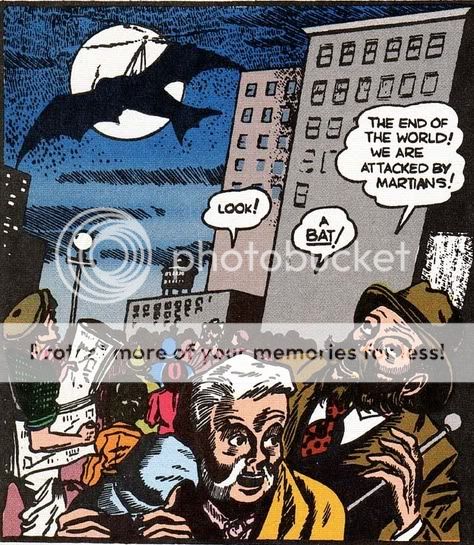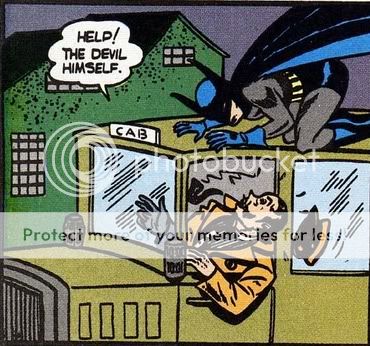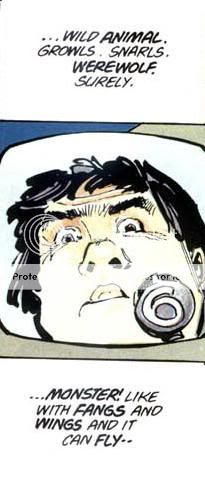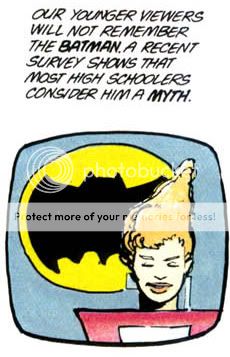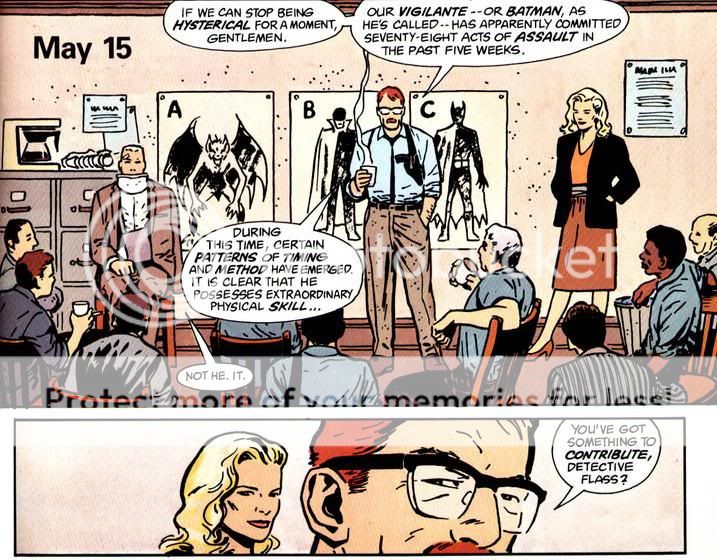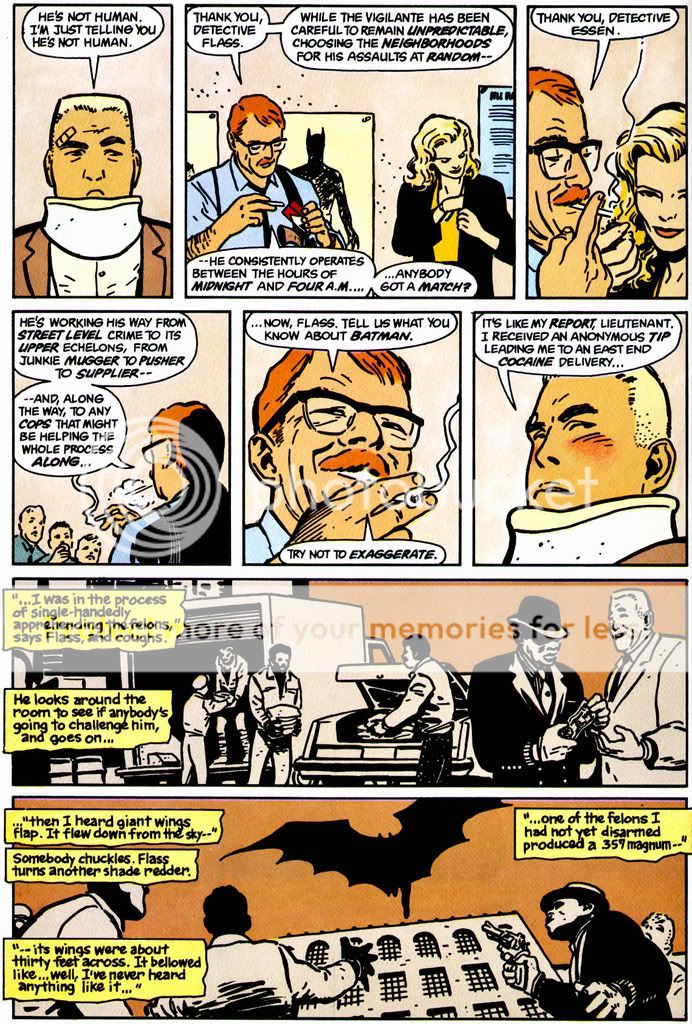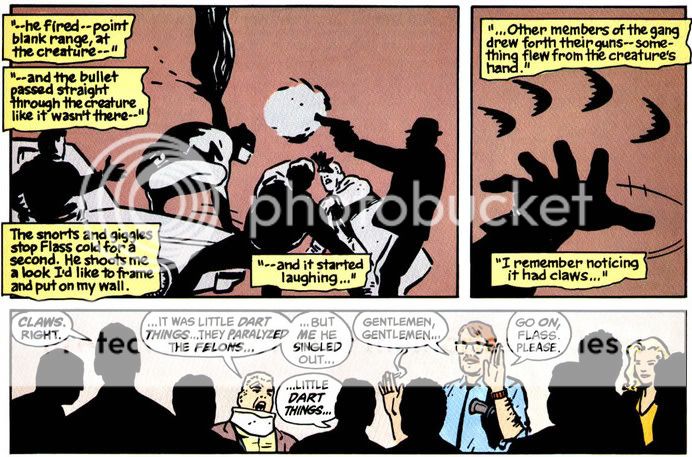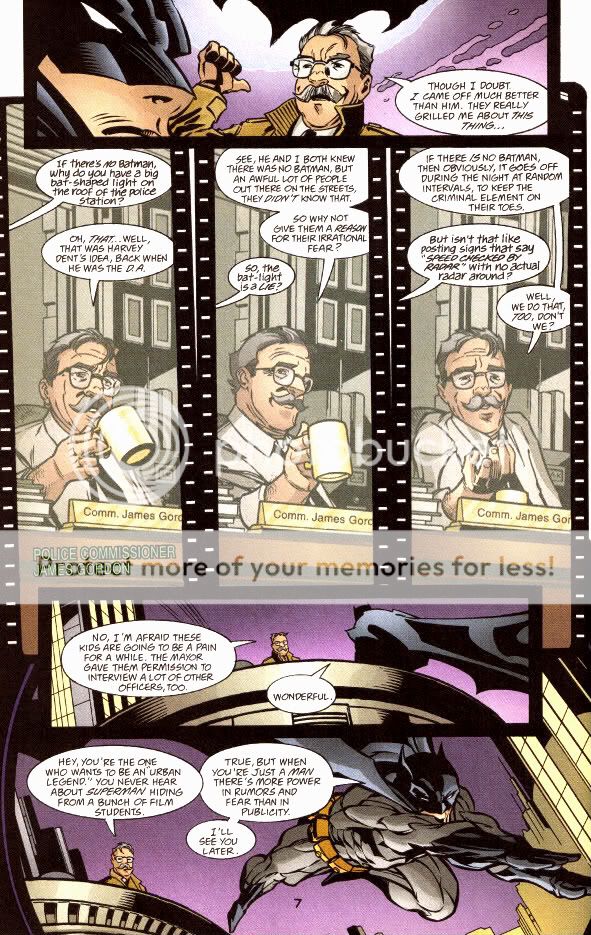Blitzkrieg Bop
Fight Owens Fight
- Joined
- Mar 28, 2009
- Messages
- 8,434
- Reaction score
- 134
- Points
- 73
As we all know, Bruce Wayne's parents were murdered when Bruce was just a child. But the identity of the killer is something that's been juggled for years. It's almost always been Joe Chill, or in some cases, a nameless mugger. This is where the question lies. Should Bruce Wayne know who killed his parents?
If he doesn't know, that means he will never find the killer, meaning there's one criminal out there he'll never throw in jail. But on a psychological level, that's the guy that he's always looking for, hoping that at some point, he'll run across the man with the haunting face. Or it could be that he has found the guy, but just doesn't know it, so as far as he knows, he's still out there.
If he does know the identity or finds it out at a later date, he comes with the most difficult choice of his life. Should he kill the man who killed his parents? We've seen this in Batman Begins and an episode of The Brave and The Bold. With Nolan's movie, Bruce was willing to shoot Chill in cold blood out in the open and the cartoon had Batman pulling his mask back, revealing his own identity. Bruce wasn't able to shoot Chill and Batman refused to kill him, despite the major consequences.
So, what works better?
If he doesn't know, that means he will never find the killer, meaning there's one criminal out there he'll never throw in jail. But on a psychological level, that's the guy that he's always looking for, hoping that at some point, he'll run across the man with the haunting face. Or it could be that he has found the guy, but just doesn't know it, so as far as he knows, he's still out there.
If he does know the identity or finds it out at a later date, he comes with the most difficult choice of his life. Should he kill the man who killed his parents? We've seen this in Batman Begins and an episode of The Brave and The Bold. With Nolan's movie, Bruce was willing to shoot Chill in cold blood out in the open and the cartoon had Batman pulling his mask back, revealing his own identity. Bruce wasn't able to shoot Chill and Batman refused to kill him, despite the major consequences.
So, what works better?

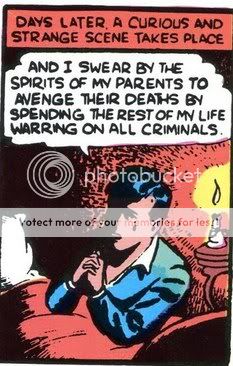

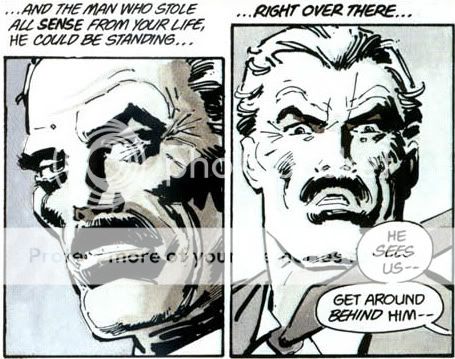

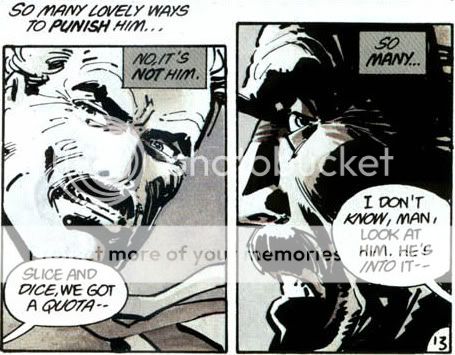
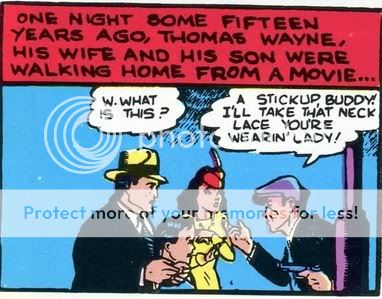
 Regarding the "never about revenge" well it really depends. It's hard to say with so many incarnations of Batman. What would Miller's Batman do if he ever found the very killer? Brave & Bold Batman was almost on the verge of killing, but ultimately had stronger emotions for justice. Morrison's Batman possibly caused Joe Chill to kill himself, but this isn't something we know whenever or not it actually happened.
Regarding the "never about revenge" well it really depends. It's hard to say with so many incarnations of Batman. What would Miller's Batman do if he ever found the very killer? Brave & Bold Batman was almost on the verge of killing, but ultimately had stronger emotions for justice. Morrison's Batman possibly caused Joe Chill to kill himself, but this isn't something we know whenever or not it actually happened.

 Fanboyisms at work.
Fanboyisms at work.